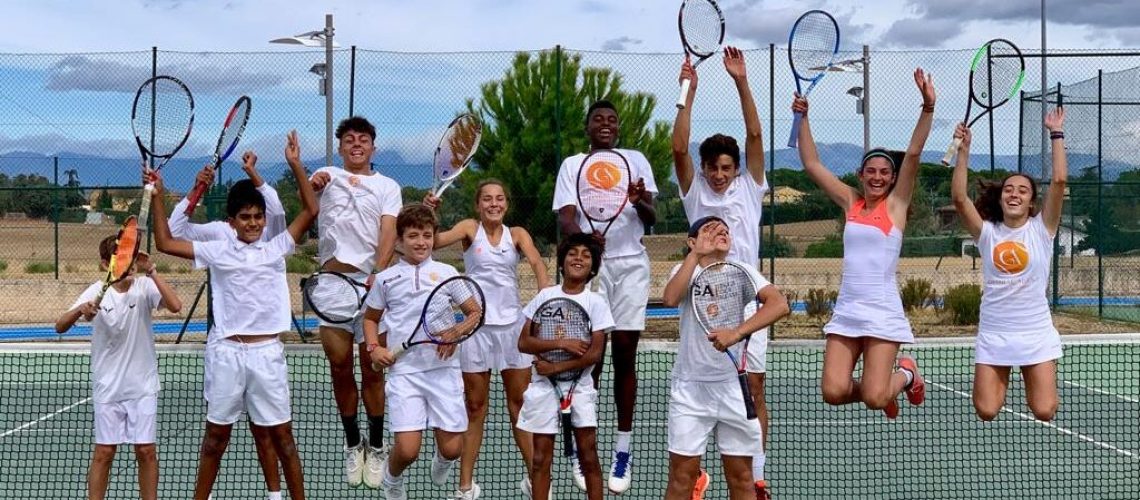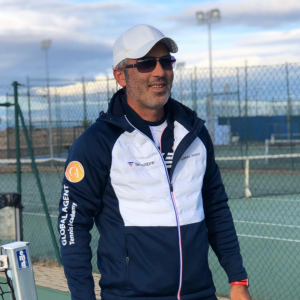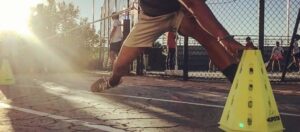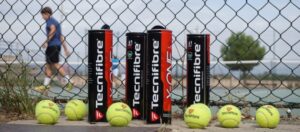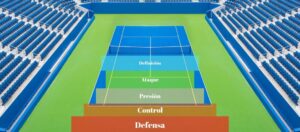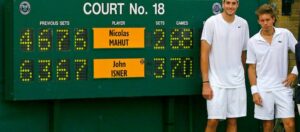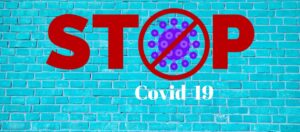Sometimes parents and even coaches have asked me a question of whether a young player (between 6 and 12 years old) should train a lot because of the risk of getting burned out. That the child can become overwhelmed, tired, wear out of “playing” tennis too much and should train less. That he would not have to train many hours or days and should just “enjoy” the sport.
Well here we have an abracadabra of erroneous formulations, although the ideas seem to carry within themselves a certain sanity; so I will try to develop the theme to give the words their most precise meaning.
Tennis is PLAYED
Tennis is a sport. We usually play tennis. We must not forget this word and what is meant by it, since even on a professional level, when each breath and each second becomes a meticulous training, the concept of PLAYING must be present. Otherwise, even a professional player can burn out.
So what does PLAYING mean? We have all been children. We have all been 6, 7, 8 years old. Do you remember when we got together with friends and invented games? Do you remember that pounding of the heart, that happiness, that joy, so much overflowing energy? We forgot everything, eating, sleeping and anything else. We could be playing days and days without rest. Fatigue was unimaginable. Only one call could stop us: “Kids, let’s eat!” Well that’s the sense of playing. That sense is the main motor of every game, including tennis. And even though generations and games change, children still play and still have the same emotions when they do.

Now lets define the meaning of training
A child since he comes into the world begins his development in multiple aspects. At a certain age, he begins to learn to walk, run, jump, and move in all directions that the body (and mind) allows. That is part of natural development, and many games MUST help this development. In addition to forming the body, at certain ages, their mind, their personality, their world of emotions are formed. All these aspects belong to the natural world of the development of a boy or a girl. And that is or should be, a TRAINING: natural learning directed to facilitate the body adaptation to a certain activity, in this case, TENNIS.
In the case of the mind, emotions, and personality, training helps to specify certain values (just as in a natural development) that the child would need to face certain demands at a personal, social or professional level at different ages.
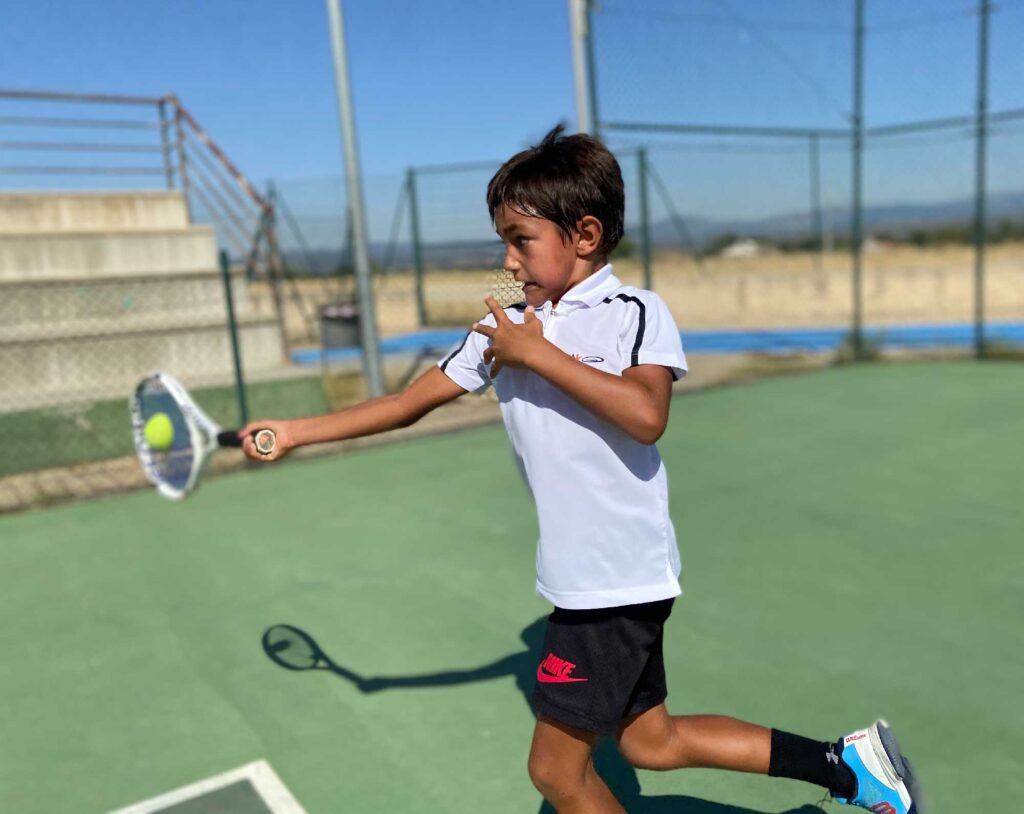
So … where is the fatal error that leads us to the burden, stress, frustration, that leads us to that macabre concept of “burning out” a child?
The error of the competition
Well, that fatal error is generated in competition and in the way in which the world of adults (without precise knowledge) suppresses and monopolizes the natural world of development of a child with its prejudices, fears and ego. In this world, play becomes obligations that the infant mind does not yet understand and training in suffering that the mind itself often rejects. With this wrong way of competing, the child stops PLAYING and begins a decadent activity that at a certain age will explode. Normally, that final age is that of the change of personality and liberation as an individual from the family to the social sphere, between 14 and 16 years old.
Adults in competition
Let’s review some typical processes from the beginning of the competition: for example, U8, U10 and U12 categories. Those are the categories in which parents are not at all prepared to face the stress generated in each confrontation. I emphasize, parents are not prepared. The children are already in the development process and, guided by their coaches, they are preparing to learn from their first steps in tournaments. But the parents have not taken any courses, nor have they were taught how to proceed in different situations in which they can find themselves in this environment. Likewise, they have not yet had similar experiences with which, after 2 or 3 years, they could (not always) learn certain skills (although normally, at best, it takes 5-6 years to learn one thing: TO BE A PARENT of a tennis player. I repeat: to be a parent and not a coach, or mentor, or physiotherapist, or masseur, or strategist, or analyst, or manager, or coach of coaches).
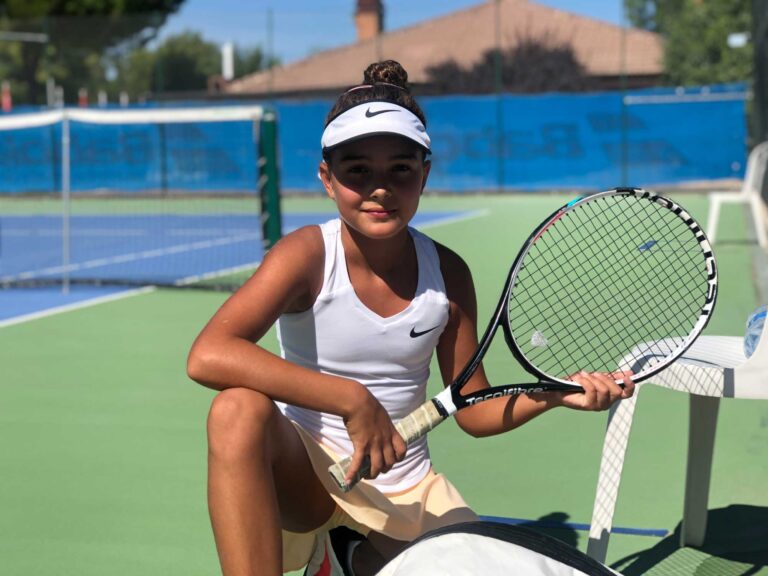
Kid, don't play! You're going to burn out!
Have we ever said to our children, “Don’t play too much, you’re going to burn out”? I think never. So why should they burn out when playing tennis? Can they be physically overloaded? The natural learning of the body’s motor system involves almost constant and daily workout; and here it is the job of the coaches to adapt the training to the child’s personal abilities, with which this fear of physical overload would already be resolved. If training helps, accompanies and directs natural development and is proposed to the child through playing (tennis in this case), there will be no way that it will harm development; on the contrary, it will be an aid for optimal and healthy growth in every sense.
Now we come to another part that would be the learning of values, the mental, emotional and ethical learning of each sport. A child needs to learn respect, discipline, overcoming, sportsmanship, companionship, etc. Some already bring a lot of learning from home, others come with less baggage, but all need to work on it. Here there is indeed an effort to behold. It is not possible to learn about overcoming without overcoming anything. It is not possible to learn about effort without effort. It is not possible to learn to get up without previously feeling the fall. But all this, the children would have to learn at some point in their lives; and what better time to do it than on a tennis court, being part of a healthy sport.
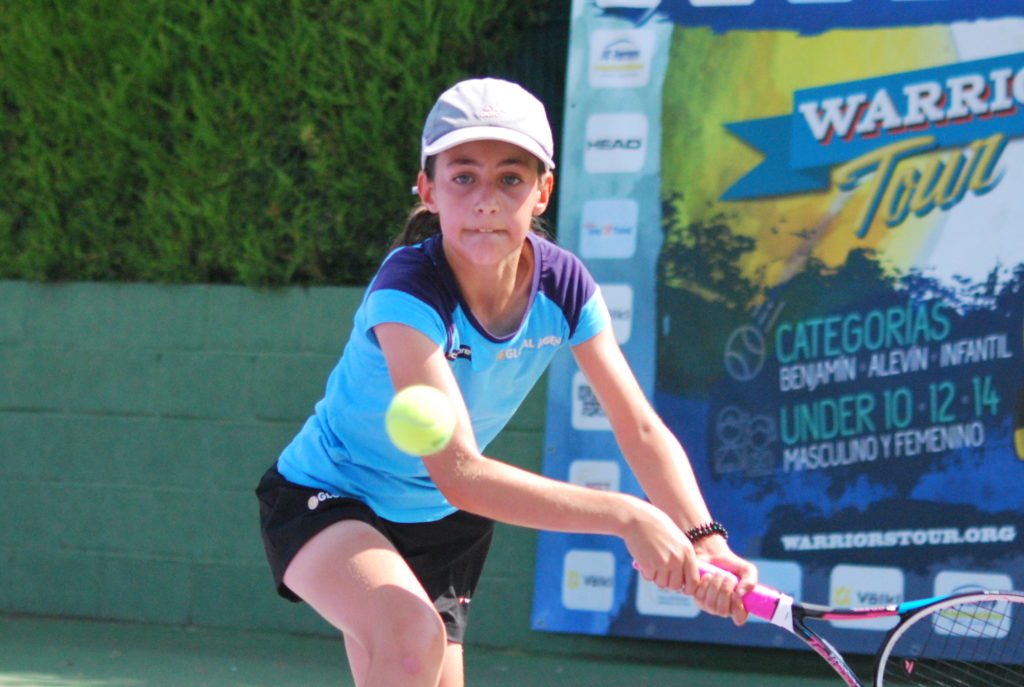
You play tennis and you learn by playing
So, in all that development work, in all this tennis training and playing, where is the stress that burdens and subsequently burns out the player? It occurs in competition and as a result of much ignorance; And worst of all, that same leaves a mark of lifetime in the person who suffers it.
So, if I have a 6-year-old child, I can train him 2 hours a day, 5 days a week (in case I see capacity and need and his coach decides so) and he would never be overwhelmed: he would enjoy … he would grow … and form in the best possible way. But without a lot of help from the parents, we will never be able to be precise, once in the competition, giving the player the best terrain for their growth.
You may also be interested in: The Myth of Talent



